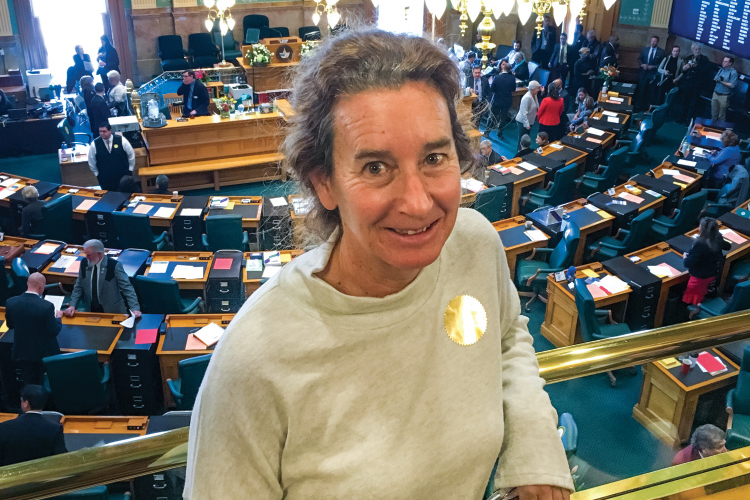Home > Colorado > Colorado Farm to Table > Colorado Ag Commissioners Put Their Experience to Work
Colorado Ag Commissioners Put Their Experience to Work
In partnership with: Colorado Department of Agriculture
When members of the nine-person Colorado Agricultural Commission make recommendations on ag policy, they know what they are talking about. This Governor-appointed producer board oversees decisions made at the Department of Agriculture, from program developments to rulemaking and more. These agricultural leaders have more than 250 years of combined experience as producers.
Commission member Kathryn Bedell, DVM, of Fruita sees her role as providing a conduit from her community to the rest of the commission. “This means not only my physical location, but the community of people I brush up against doing business in agriculture,” says Bedell, who raises grass-fed cattle and owns Roan Creek Ranch Grocery, where she sells her branded beef products and other local foodstuffs from the Western Slope.

Bedell’s decision to raise her beef on grass and hay developed over time. In veterinary school, Bedell observed the practice of feeding human food waste such as orange pulp, potato peelings – or anything that might be left over from manufacturing food products – to beef and dairy cows. She’s opposed to growth hormones in livestock and believes grains are not part of a cow’s natural diet. Bedell’s knowledge of regenerative ranching brings an experienced voice to the “greening” of agriculture. “I see my role as someone who is involved in that space already, someone who can help move the conversation along toward more regenerative agriculture,” she says. “The administration’s whole platform focuses on the future.”
Preparing for Future Generations
Looking to the future also means keeping Colorado’s agricultural lands in agriculture. The next generation of producers must be able to make a living doing so. Commission member Segundo Diaz knows this firsthand. His father-in-law and brother-in-law started raising certified seed potatoes in 1978. Segundo and his wife Margie took over Martinez Farms in 1986, and today, three of Diaz’s four sons also work on the 2,500-acre farm in the San Luis Valley. They raise more than 20 varieties of potatoes and manage a tissue culture lab and greenhouse propagation facility.
Diaz is serving his second term as a commission member, and he says he’s learned a lot from his fellow commission members who produce other commodities. “We raise seed potatoes and barley,” he says. “We don’t know about peaches, grapes or wheat. But when you consider labor issues, federal and state regulations, the water situation, climate change – each of us is facing the same common issues.”
He echoes Bedell’s concerns about the future of farming. “We have to be thinking about the next generation,” he says. Despite the challenges, many of which are drastically different from those he faced when he started 35 years ago, Diaz remains philosophical. “Farming will survive,” he says. “It’s still a good way of living.”



